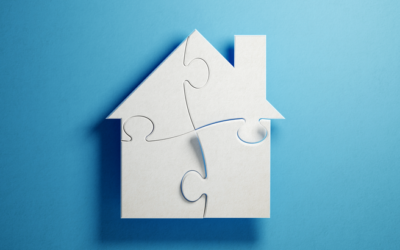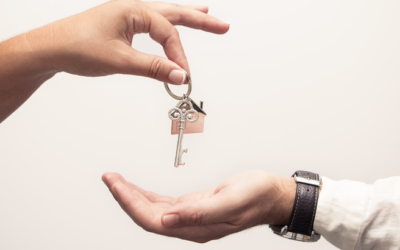
“Home values have been increasing for 93 consecutive months, according to the National Association of Realtors.”
Home values have been increasing for 93 consecutive months, according to the National Association of Realtors. If you’re a homeowner, particularly one looking to downsize your living space, that’s great news, as you’ve likely built significant equity in your home.
Here’s some more good news: mortgage rates are expected to remain low throughout 2020 at an average of 3.8% for a 30-year fixed-rate loan.
The combination of leveraging your growing equity and capitalizing on low rates could make a big difference in your housing plans this year.
How to Use Your Home Equity
For move-up buyers, the typical pattern for building financial stability and wealth through homeownership works this way: you buy a house and gain equity over several years of mortgage payments and price appreciation. You then take that equity from the sale of your house to make a down payment on your next home and repeat the process.
For homeowners ready to downsize, home equity can work in a slightly different way. What you choose to do depends in part upon your goals.
According to HousingWire.com, for some, the desire to downsize may be related to retirement plans or children aging out of the home. Others may be choosing to live in a smaller home to save money or simplify their lifestyle in a space that’s easier to clean and declutter. The reasons can vary greatly and by generation.
Those who choose to put their equity toward a new home have the opportunity to make a substantial down payment or maybe even to buy their next home in cash. This is incredibly valuable if your goal is to have a minimal mortgage payment or none at all.
A local real estate professional can help you evaluate your equity and how to use it wisely. If you’re planning to downsize, keep in mind that home prices are anticipated to continue rising in 2020, which could influence your choices.
The Impact of Low Mortgage Rates
Low mortgage rates can offset price hikes, so locking in while rates are low will be key. For many downsizing homeowners, a loan with a shorter term is ideal, so the balance can be reduced more quickly.
Interest rates on 10, 15, and 20-year loans are lower than the rates on a 30-year fixed-rate loan. If you’re downsizing your housing costs, you may prefer a shorter-term loan to pay off your home faster. This way, you can save thousands in interest payments over time.
Bottom Line
If you’re planning a transition into a smaller home, the twin trends of low mortgage rates and rising home equity can kickstart or boost your plans, especially if you’re anticipating retirement soon or just want to live in a smaller home that’s easier to maintain. Let’s get together today to explore your options.
To view original article, visit Keeping Current Matters.
How Buying or Selling a Home Benefits Your Community
It makes sense that housing creates a lot of jobs because so many different kinds of work are involved in the industry.
Tips for Younger Homebuyers: How To Make Your Dream a Reality
An agent will help you prioritize your list of home features and find houses that can deliver on the top ones.
What Is Going on with Mortgage Rates?
Based on current market data, experts think inflation will be more under control and we still may see the Fed lower the Federal Funds Rate this year.
What More Listings Mean When You Sell Your House
if you’re considering whether or not to list your house, today’s limited supply is one of the biggest advantages you have right now.
Now’s a Great Time To Sell Your House
Late spring and early summer are generally considered the best times to sell a house as these are the seasons most people move and buyer demand grows.
Is a Multi-Generational Home Right for You?
Looking for the perfect multi-generational home is a bit trickier than finding a regular house. A local real estate agent can help you out.







.jpg )



